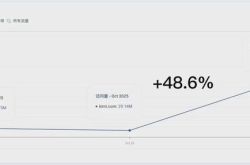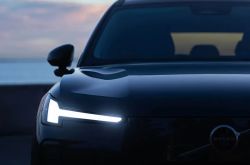"Union of Discontented Women," Hunting BYD
![]() 06/25 2024
06/25 2024
![]() 539
539
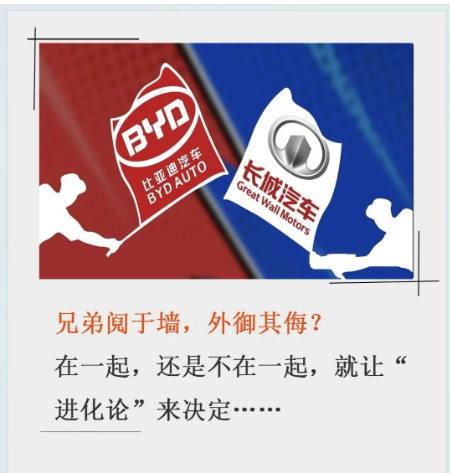
Although in the past few days, a discussion centered on "playing cards at the table, who is cheating" has once again made the long-standing "internal competition and insults" trend continuously trending on search engines.
The intense confrontation involving Great Wall, BYD, Roewe, GAC, Geely, as well as netizens, car reviewers, pseudo-experts, pseudo-bigwigs, and fans from all sides has made the debate on "whether low-priced cars should participate in the poker table of fighting landlords" increasingly complex and confusing.
Among them, Li Ruifeng, the CGO of Great Wall, once again brought unprecedented popularity to Haval H6 after his previous essay criticizing the "poor marketing of H6" by Wei Jianjun.
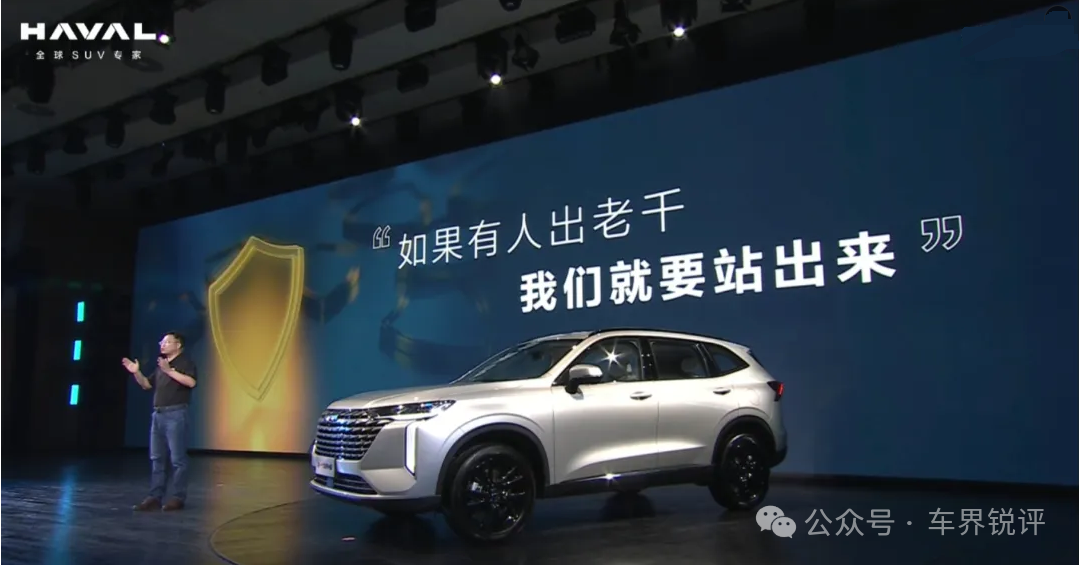
Thinking about it, the new Haval H6 has gained popularity in this way, and the blogger's heart must be filled with mixed emotions.
In the history of Chinese automobiles, Haval H6 occupies a very important position. Since its launch in 2011, the sales of Haval H6 have been continuously booming, once ranking as the sales champion for 108 consecutive months, undoubtedly becoming the "national spiritual vehicle"; however, after 2022, Haval H6 ended its years of dominance in the SUV market, with its ranking continuously declining...
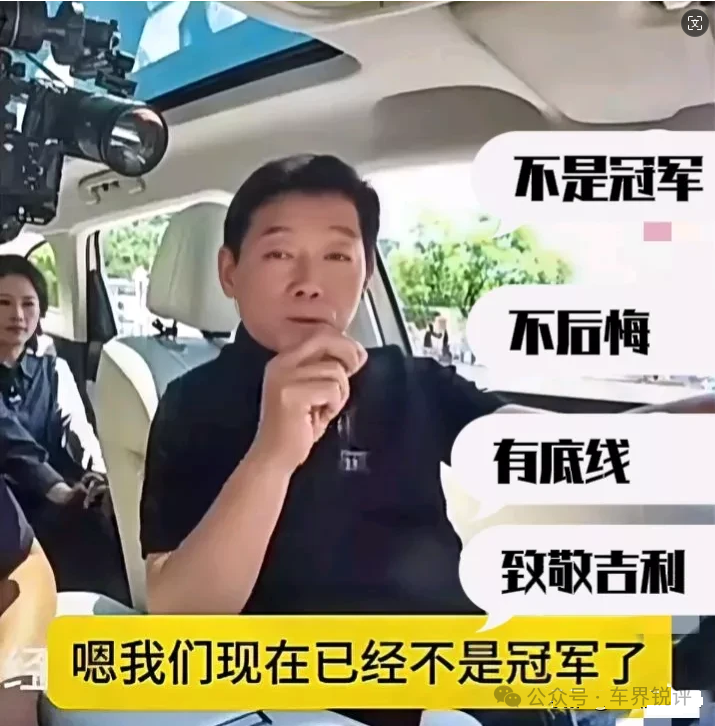
Seeing the "dilemma" of Haval H6, Li Ruifeng tried to find a breakthrough from internal optimization and external avenues. However, various interpretations and "twisted reviews" on the internet are unknown whether they align with Li's original intention.
However, Roewe, who enjoys watching the chaos, also came to interfere and蹭热度...
Subsequently, numerous other companies, fans, onlookers, and "experts" in forums offered advice, criticized, and made witty jokes continuously on the internet.

Leaving aside the "grudges and affections" between Great Wall and BYD over the years: In 2007, BYD sued Great Wall for infringing on its trademark rights and demanded compensation of 150 million yuan. In 2010, BYD accused Great Wall of copying its F3 model and demanded compensation of 220 million yuan. In 2018, BYD once again sued Great Wall for infringing on its design patent rights and demanded compensation of 150 million yuan. In April 2023, Great Wall reported that BYD's pollutant emissions did not meet standards. BYD issued a statement expressing its firm opposition to any form of unfair competition.
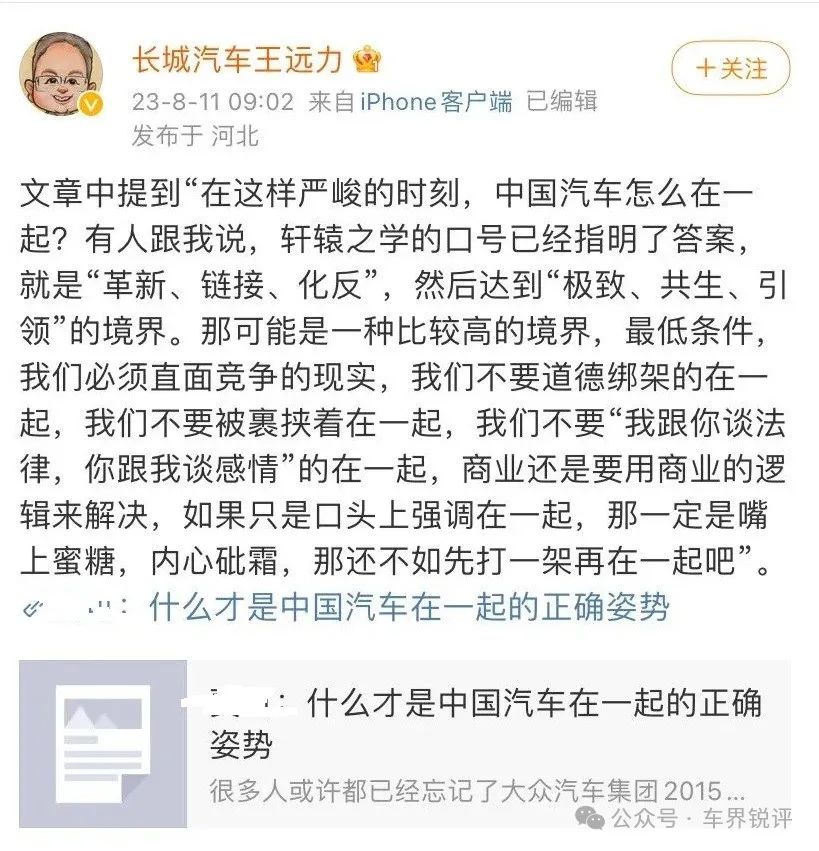
In fact, Li Ruifeng from the Great Wall has not yet directly complained about the disorderly competition in which "Chinese cars should focus on value, technology, and services, rather than relying on coaxing, deception, or deception". At the China Automotive Chongqing Forum in May, there was already a heated debate about "low prices, cutting corners...".
For example, Guangqi Chairman Zeng Qinghong cited Changan Automobile Chairman Zhu Huarong's point of view, pointing out that pursuing internal competition is not a long-term solution for enterprises, and calling for equal power between oil and electricity.
Geely Chairman Li Shufu said, "The endless internal competition, simple and rough price war, results in cutting corners, counterfeiting and selling, and irregular and disorderly competition."
Whether it's Li Ruifeng, Zeng Qinghong, or Li Shufu, the logic behind their views is similar, that is, in the Chinese automotive market, there are "black sheep" who disrupt the competitive order, and even use low-quality and low prices to provoke malicious competition and seize markets that should not be seized.
However, netizens are also very interesting, jokingly joking that this is a collective meeting of the "Complaining Wives Alliance", competing against landlords on the internet? However, recently the BYD mini has also been engaging in a side battle.
So why are these car companies targeting BYD and not satisfied with it?
Objectively speaking, BYD has been too popular in the past two years, with frequent popular models in different price ranges, making other brands of gasoline powered cars, especially joint venture cars, scattered. The Haval H6 from Great Wall has dominated the charts for 108 consecutive months and has been taken down by Song PLUS. The mainstream A-class market of joint venture cars from Japanese, French, Korean, and American brands is constantly being eroded by Qin PLUS.
Clearly severing the financial path of the former "lying flat" joint venture car company will inevitably cause hostility from others and blatant hatred among peers.
Secondly, BYD is now leading, but the lead is not significant enough to completely convince others.
According to data from the China Association of Automobile Manufacturers, BYD's sales never exceeded 500000 vehicles in the decade from 2011 to 2020.
The real turnaround relying on new energy vehicles is in 2021. In this year, BYD Automobile sold 730000 vehicles, including 545000 new energy vehicles, accounting for 74.6%. In 2022, BYD stopped selling gasoline vehicles, and the sales of new energy vehicles doubled to 1.782 million units, with a total sales volume of 1.87 million units. In 2023, BYD sold over 3 million vehicles, all of which were new energy vehicles.
The equivalent of 3 million yuan per year also helped it become the first Chinese car company to enter the top ten globally.
By comparison, SAIC Group's sales from 2018 to 2023 were 7.05 million, 6.24 million, 5.6 million, 5.46 million, 5.3 million, and 5.02 million respectively. Although it has been declining, BYD is still just a rising star in the eyes of these giants, belonging to the "nouveau riche" under the dividends of the times.
At first glance, it doesn't look pleasing to the eye. It's a bit like a poor scholar in the village before. Suddenly, Yi Jin returns to his hometown one day, which will naturally attract some criticism from the old scholars before.
Luo Yonghao once commented on the phenomenon of competition: "Becoming the largest among a group of chickens is far from enough. Only by becoming an ostrich can you make other chickens shut up!"
Although it may sound rough, the reality is that this kind of "conflict competition" will continue.
Why are some domestic car companies instantly defeated when they come together?
Do you still remember that in 1997, a fifth generation GAC Accord "luxury car" was priced as high as 395000 yuan in China. Buying a car had to rely on connections, and an additional tens of thousands of yuan were needed to buy it. It wasn't until 2008 that the eighth generation Accord was still being priced up before the car could be picked up.
After lying down for thirty years, I don't know how much profit I have made, but how many joint venture car companies have gained true technology and rise through profit and market?
For specific reasons, let's brainstorm on our own!
In short, there is no inexplicable strength, and companies form a group of complaints due to blatant competition for interests, which cannot be exchanged for sympathy from others.
Finally, it is hoped that Chinese car companies will gradually form a healthy competition in terms of technology, price, and quality, so that better products and services can go abroad and conquer the world.

